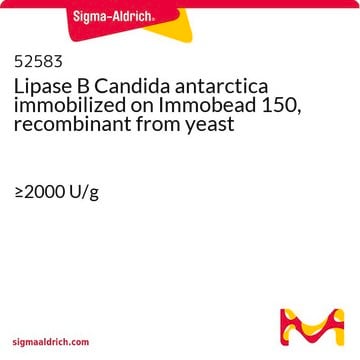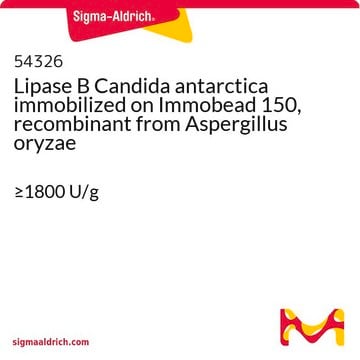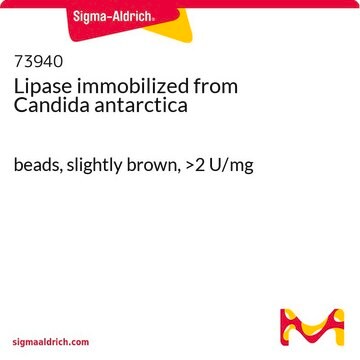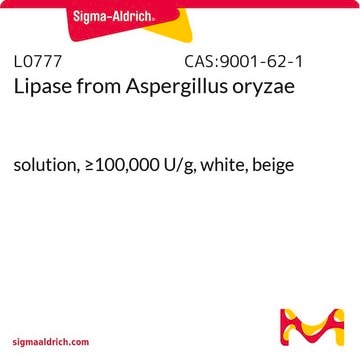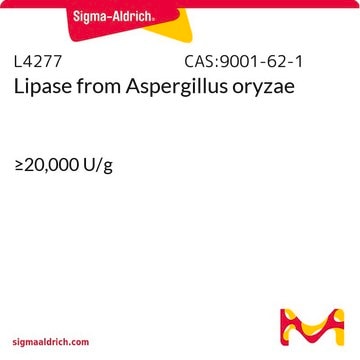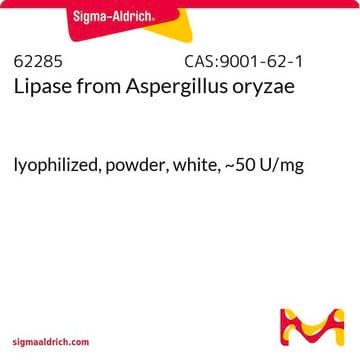62288
Lipase B Candida antarctica, recombinant from Aspergillus oryzae
powder, beige, ~9 U/mg
About This Item
Produits recommandés
Produit recombinant
expressed in Aspergillus oryzae
Niveau de qualité
Forme
powder
Activité spécifique
~9 U/mg
Poids mol.
33 kDa
Couleur
beige
Température de stockage
2-8°C
InChI
1S/C11H9N3O2.Na/c15-8-4-5-9(10(16)7-8)13-14-11-3-1-2-6-12-11;/h1-7,16H,(H,12,14);/q;+1/b13-9-;
Clé InChI
QWZUIMCIEOCSJF-CHHCPSLASA-N
Vous recherchez des produits similaires ? Visite Guide de comparaison des produits
Description générale
Application
- as a standard to characterize the enzymatic properties of D5-CalB
- as an efficient biocatalyst to start the reaction to obtain (R)-ester via esterification of racemic secondary alcohol
- to investigate a “green” recycling route for polybutylene succinate (PBS) based on reactive extrusion
- to compare the esterification yield with adsorbed CaLB (aCaLB) and covalently immobilized CaLB (cCaLB)
Actions biochimiques/physiologiques
Candida antarctica lipase B (CALB) possesses wide substrate specificity, high activity and high enantioselectivity, hence it is considered as a major enzyme in biotechnology. It also has the capability to perform in aqueous and non-aqueous reaction environments. CALB is used in transesterification, kinetic resolution and polymerization reactions.
Définition de l'unité
Mention d'avertissement
Danger
Mentions de danger
Conseils de prudence
Classification des risques
Resp. Sens. 1
Code de la classe de stockage
11 - Combustible Solids
Classe de danger pour l'eau (WGK)
WGK 1
Point d'éclair (°F)
Not applicable
Point d'éclair (°C)
Not applicable
Équipement de protection individuelle
Eyeshields, Gloves, type N95 (US)
Certificats d'analyse (COA)
Recherchez un Certificats d'analyse (COA) en saisissant le numéro de lot du produit. Les numéros de lot figurent sur l'étiquette du produit après les mots "Lot" ou "Batch".
Déjà en possession de ce produit ?
Retrouvez la documentation relative aux produits que vous avez récemment achetés dans la Bibliothèque de documents.
Les clients ont également consulté
Notre équipe de scientifiques dispose d'une expérience dans tous les secteurs de la recherche, notamment en sciences de la vie, science des matériaux, synthèse chimique, chromatographie, analyse et dans de nombreux autres domaines..
Contacter notre Service technique